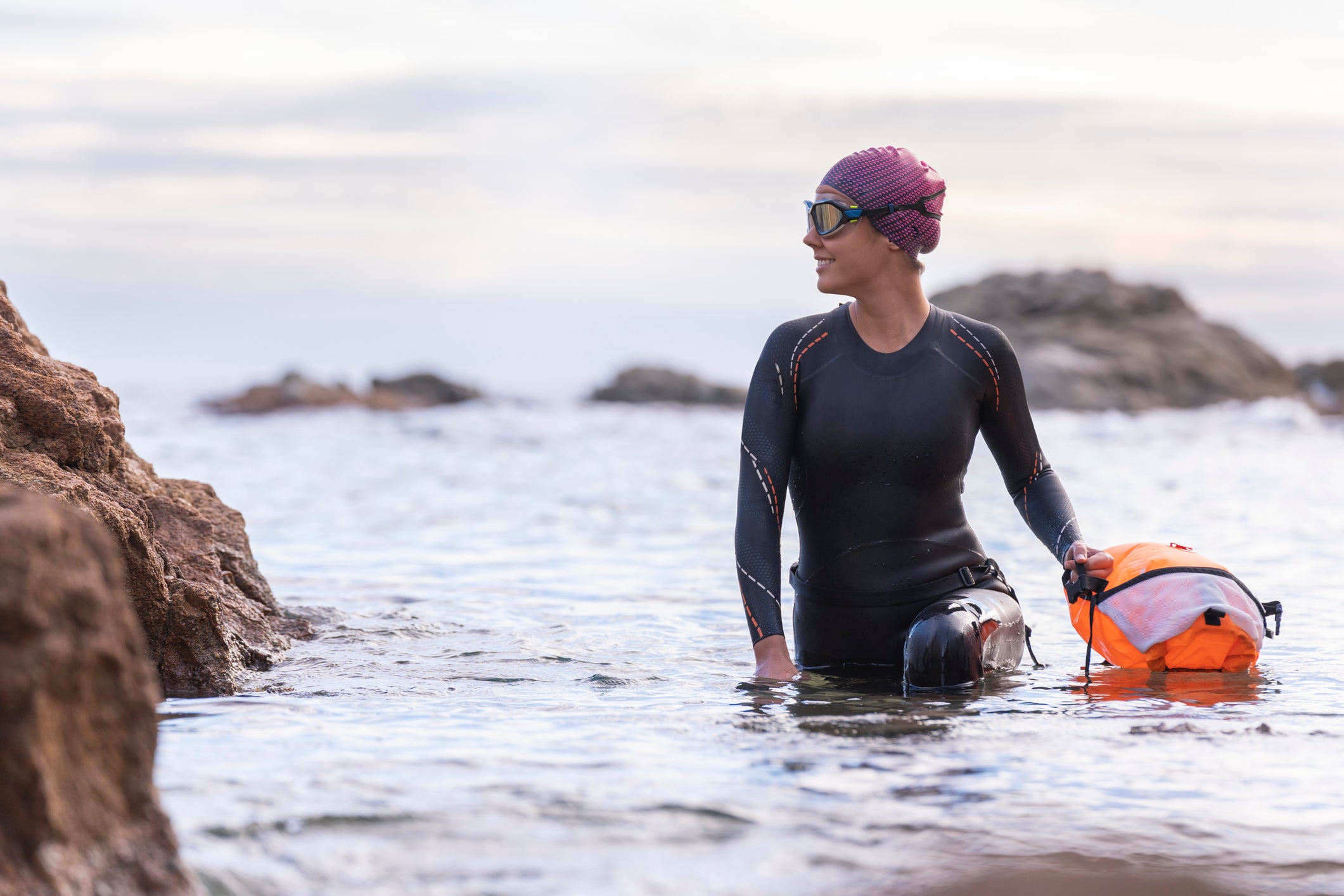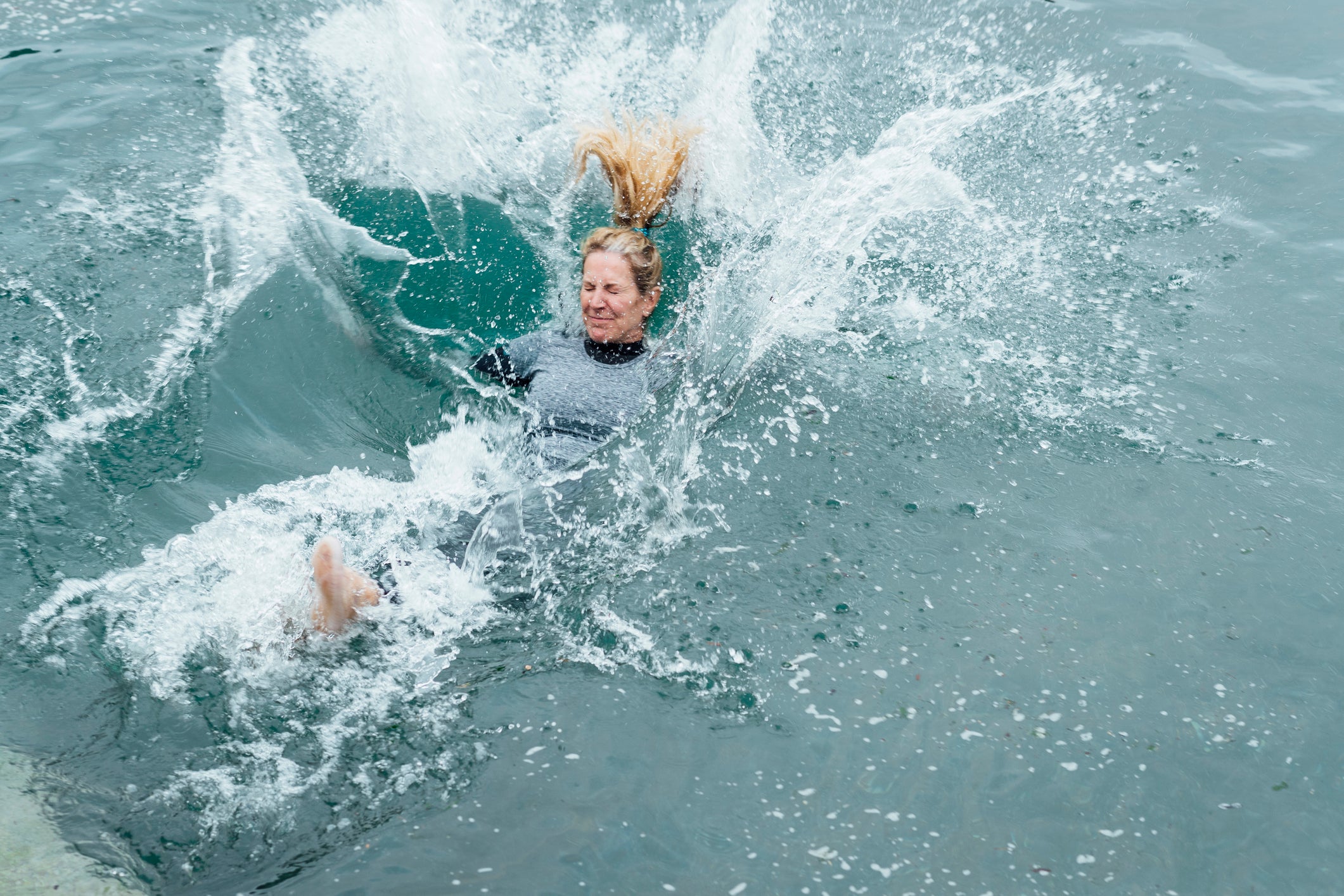Experts advise on how to stay safe while swimming in open water
Before getting into rivers, lakes or the sea, you should consider the risks
Each year, rising temperatures and longer days in summer encourage Britons to seek out bodies of water to cool off and have fun in.
Swimming, paddleboarding and other water-based activities can provide a wholesome day for families and friends, whether that’s in lakes, rivers, or at the seaside. However, there are a number of safety measures individuals should remember when taking part in these.
It comes after several people had drowned in rivers, lakes and in the sea in recent weeks, with four deaths occurring over the Spring Bank Holiday weekend alone.
The incidents have prompted warnings from police reminding people to be “vigilant to the dangers of the coast and follow water safety advice”.
The Royal Life Saving Society UK (RLSS UK) has also issued a safety warning for people planning to be around open water, regardless of whether you consider yourself a strong swimmer.
Lee Heard, charity director at RLSS UK, said: “Sadly we see an increase in young men drowning in the summer months and we have tragically seen a number in the past few weeks during the warmer weather we have had. We don’t want to see any more families experience the devastating and sudden loss from drowning.”
He added: “We urge people to consider what could happen, understand that the water is colder than it looks, and not take risks if they are not experienced with being in cold, open water.
“Whether you are heading to the coast for the bank holiday weekend or even just planning a walk along a river, please ensure that you take precautions to ensure the safety of yourself of those you are with. We want everyone to enjoy the bank holiday but to so with water safety in mind.”
When swimming in open water, people should consider the risks involved before jumping in, particularly because bodies of water can be much colder than people realise. Getting straight into very cold water can lead to cold water shock.

According to the National Water Safety Forum, this is the body’s short-term, involuntary response to being suddenly immersed in cold water, and is considered to be a principal underlying factor in drowning.
When a person gets into cold water very suddenly, the blood vessels in the skin close, which results in increased resistance to blood flow. The heart has to work harder to pump blood around the body, which leads to increased blood pressure.
At the same time, the body experienced a “gasp” response as well as a dramatic change in the breathing rate. The person will be unable to keep their breath steady for a while after they first get into the cold water.
“The effect of these can lead to a sense of panic, inhalation of water, leading in some circumstance to a cardiac arrest,” the forum says.
Cold water shock can be managed by wearing a well-fitting wetsuit and entering the water slowly.

However, if a person has had an accidental fall into cold water without a wetsuit, the forum recommends using a technique called “float-first”, which involves tucking your legs and floating on your back, focusing on staying tucked and controlling your breathing until you feel you can self-rescue or be helped by others.
When planning to go swimming in open water, people should check if the area is lifeguarded, has a safe-swim zone or is under any kind of supervision. A list of designated bathing waters in the UK, provided by the Environment Agency, also name many sites that are not supervised.
In the instance that the water you are entering is not supervised, the forum recommends asking yourself if you have the right knowledge and experience to establish if conditions are suitable. It warns people to be particularly cautious in quarries and reservoirs, which can be “deceptively deep and cold throughout the year”, as well as in rivers with weirs and fast-flowing water, and potentially polluted locations.
Heard adds: “If you or someone else finds themselves in difficulty in the water, it’s vital to remember the Water Safety Code: whenever you are around water you should stop and think to assess your surroundings and look for any dangers; stay together when around water and always go with family and friends; in an emergency call 999 and ask for the Fire and Rescue service when inland and the Coastguard if at the coast.
“Finally, float to live, if you fall in or become tired, stay calm, float on your back and call for help, or if you see someone in the water, throw something that floats to them and resist temptation to go in.”
Join our commenting forum
Join thought-provoking conversations, follow other Independent readers and see their replies
Comments


Bookmark popover
Removed from bookmarks